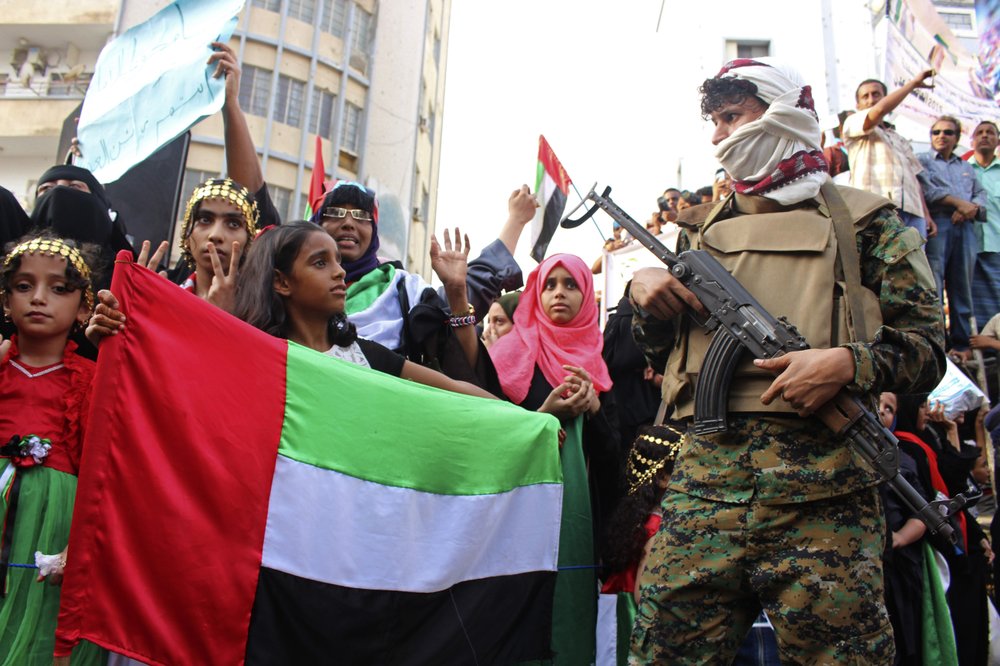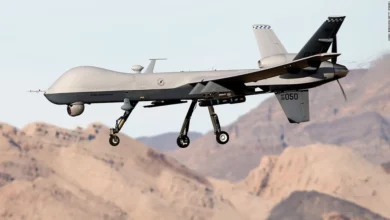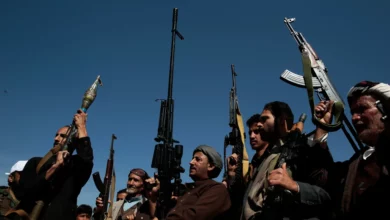Sanaa — Yemen's opposition warned the government on Thursday that violence against street protesters demanding the removal of President Ali Abdullah Saleh could derail a deal aimed at ending the political standoff.
Plainclothes gunmen killed 12 people and wounded dozens more in Yemen's capital on Wednesday when they opened fire on anti-government marchers just days before a Gulf-mediated deal to end the crisis was due to be sealed. "In the event of your inability to protect protesters, we will find ourselves unable to pursue an agreement that the regime seeks to use to shed more blood," the opposition coalition said in a statement.
A deal to end the crisis by easing Saleh out within a month was expected to be signed on Sunday in Riyadh, three months after Yemenis took to the streets, inspired by revolts that toppled autocratic rulers in Egypt and Tunisia.
But on Thursday Saleh appeared to raise a potential problem when he told Russia's Arabic language Russia Today channel that he objected to the presence of Qatari representatives.
"We will have reservations about signing if representatives of Qatar are present among the Gulf foreign ministers," Saleh said. "(Qatar) is involved in a conspiracy not just against Yemen but against all Arab countries."
He singled out Qatar's pan-Arab television channel Al-Jazeera, which Saleh has accused in the past of provoking the protests. He also accused Qatar, a tiny but gas-rich Gulf state, of funding the opposition in Yemen.
The balance of power has tipped against Saleh, long a key ally of the West against Al-Qaeda, after weeks of violence, military defections and political reversals.
Wednesday's killings capped a day of demonstrations by tens of thousands of Yemenis, many protesting against a plan supported by the government and the main opposition group which would give Saleh a month-long window to resign.
The protesters in Sanaa demanding Saleh resign immediately were shot at while attempting to reach an area beyond the district where they have been camped out since February, witnesses said. Ten died on the spot, while two more died of wounds on Thursday, doctors said.
In addition to the 12 killed in Sanaa, a protester and a soldier also died in clashes during protests in the southern port city of Aden on Wednesday.
On Thursday night armed men opened fire on state security offices in Zinjibar in south Yemen killing one soldier, and gunmen exchanged fire with guards outside the central bank in the port city of Aden.
The large turnout at protests against the Gulf deal showed the ability of the largely young protesters, from students to tribesmen to activists, to act as potential spoilers. They have vowed to stay in the streets until their demands are met.
It was also not clear that opposition parties, comprised of Islamists, Arab nationalists and leftists who have been in and out of government in past years, could halt the protests even if required to by the transition agreement.
SALEH TO SIGN DEAL ON SATURDAY
Washington and neighboring oil producer Saudi Arabia want the standoff resolved to avert a descent into more bloodshed in the Arabian Peninsula state that would offer more room for a Yemen-based Al-Qaeda wing to operate.
A government official said that Saleh, who has ruled for 32 years, would sign the agreement on Saturday in Sanaa, a day ahead of the official signing ceremony in the Saudi capital, which Saleh was not expected to attend.
On Sunday, the ruling party's vice president and a former prime minister, Abdel-Karim al-Eryani, would sign in Riyadh on behalf of the party, the official said. The opposition would also sign on Sunday.
Both sides were expected to host large rallies in Sanaa on Friday ahead of the signing. The government planned a "Friday of Constitutional Legitimacy," while the opposition planned a "Friday of Honouring Martyrs."
The deal, brokered by the six-member Gulf Cooperation Council, would give Saleh and his family and aides immunity from prosecution.
It provides for Saleh to appoint a prime minister from the opposition, who would then form a transition government ahead of a presidential election two months after his resignation. But the one-month window for Saleh to resign has sparked fears it may offer time for potential sabotage.
Whoever leads Yemen's transitional government will not only struggle to quash an aggressive Al-Qaeda branch, which has tried to hit US and Saudi targets, but also inherit simmering rebellions in the north and south of the country.
Around 142 protesters have been killed as unrest has swept Yemen, where some 40 percent of its 23 million people live on US$2 a day or less, and a third face chronic hunger.
The Interior Ministry said on Thursday that more than 21 policemen had died and 1000 had been wounded since 3 February.




